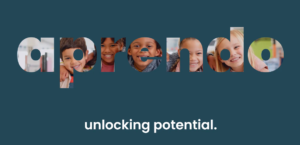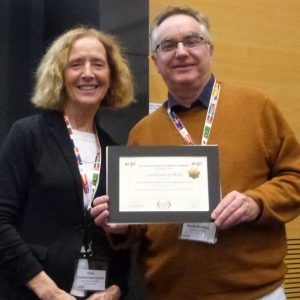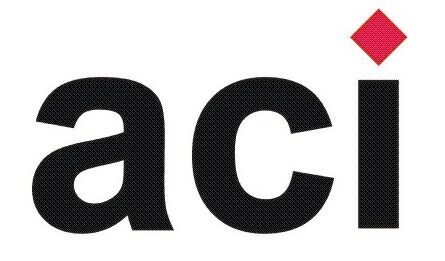 E-Learning and blended learning are now well integrated into teaching and training. This method of education is being used from preschool through to postgraduate study, not to mention in business and industry.
E-Learning and blended learning are now well integrated into teaching and training. This method of education is being used from preschool through to postgraduate study, not to mention in business and industry.
However, examples of high performing e-Learning applications are hard to find. For this reason, in 2015, ACPIL established the e-Learning Excellence Awards to showcase innovative examples of e-Learning use. These examples are presented through case histories which can be written by academics, teachers, business professionals or students. Examples are welcome from universities or schools as well as the private and public sectors. The Awards are now in their ninth year and the finals will be run alongside the European Conference on e-Learning, which is on tour in Porto, Portugal on the 24-25 October 2024.
The winner of the 2023 e-Learning Excellence Awards was the initiative: Physical category: Diagnosis Zombie: An Interactive Lesson on Brain and Behaviour Jane Guiller, Alex Oliver, Ken Rice, Emma Gibson and Jordyn McNally, Glasgow Caledonian University, Scotland, UK. Virtual category: Unlocking Potential: Creating an Innovative Learning Platform to Foster Digital Skills of Educators. Georg Winder, Andrea Kern, Karin Zehetner and Josef Buchner, St Gallen University of Teacher Education, Switzerland.
You can read the case history and the other finalists in the 2023 Anthology of Case Histories, available from www.academic-bookshop.com
To enter the competition this year we ask you in the first instance to submit an abstract of 300 words describing your initiative. If your proposal is suitable you will be invited to submit a full case history of no more than 3000 words which will be considered as an entry to the competition. A panel of international adjudicators will evaluate the case histories.
When preparing your abstract, keep in mind that full case histories will be structured around the following headings:
- Introduction to the nature of the e-Learning initiative and its specific objectives
- The infrastructure i.e. people, systems, hardware, software etc. required to launch the initiative
- The challenges that were encountered, how they developed and how they were overcome
- How the initiative was received by the users or participants
- The learning outcomes that were achieved and how they were measured and evaluated
- Plans to further develop the initiative.
Authors of the top rated initiatives will be invited to register and attend the European Conference on e-Learning at University of South Africa on 26–27th October 2023 to present their case histories to the judges and conference participants. Finalists will also have their case histories published in a book and a prize will be awarded to the initiative judged to show the most creative thinking.
All presenters in the awards must attend the physical conference.
To submit an abstract to the competition, please use the online form:
https://www.academic-conferences.org/conferences/ecel/ecel-awards-submission/
Important Dates - to be confirmed
Abstract Submission - 15 May 2024
Notification of Abstract Acceptance – 29 May 2024
Full Case History Submission – 08 July 2024
Finalists announced –08 August 2024
If you have any queries, email: marti@academic-conferences.org
Further information about the European Conference on e-Learning can be found at:
https://www.academic-conferences.org/conferences/ecel/
Previous Winners
ECEL 2023
Physical Category: Diagnosis Zombie: An Interactive Lesson on Brain and Behaviour
Jane Guiller, Alex Oliver, Ken Rice, Emma Gibson and Jordyn McNally, Glasgow Caledonian University, Scotland, UK Virtual Category: Unlocking Potential: Creating an Innovative Learning Platform to Foster Digital Skills of Educators
Virtual Category: Unlocking Potential: Creating an Innovative Learning Platform to Foster Digital Skills of Educators
Georg Winder, Andrea Kern, Karin Zehetner and Josef Buchner, St Gallen University of Teacher Education, Switzerland.
ECEL 2022
open.uom.lk: A Free Online Knowledge Sharing Platform
Vishaka Nanayakkara, Buddhika Karunarathne, Malik Ranasinghe, Amal Shehan Perera, Gayashan Amarasinghe, Sandareka Wickramanayake, Supunmali Ahangama, Kulani Mahadewa, Chathuranga Hettiarachchi, University of Moratuwa, Katubedda, Sri Lanka and Hasith Yaggahavita, 99x Technology, Colombo, Sri Lanka (V)
ECEL 2021
Web-Based Dementia Care Partner Education using the iGeriCare Platform
Anthony J. Levinson, Stephanie Ayers, Lori Mosca, Alexandra Papaioannou, Sharon Marr and Richard Sztramko
ECEL 2020
Lab/Skill based learning under COVID-19
Ekkehard Altenburger, Hong Kong Baptist University, Hong Kong SAR
ECEL 2019

Transforming Professional Learning with Mobile Technologies
Kevin Burden, Matthew Kearney and Sandy Schuck
.
ECEL 2018

Fashion Students Choose how to Learn
Michaella Cavanagh, Durban University of Technology, South Africa
ECEL 2017
Online Experiential Learning: Bringing the Complexities of the Courtroom to the Classroom
Karen Miner-Romanoff

